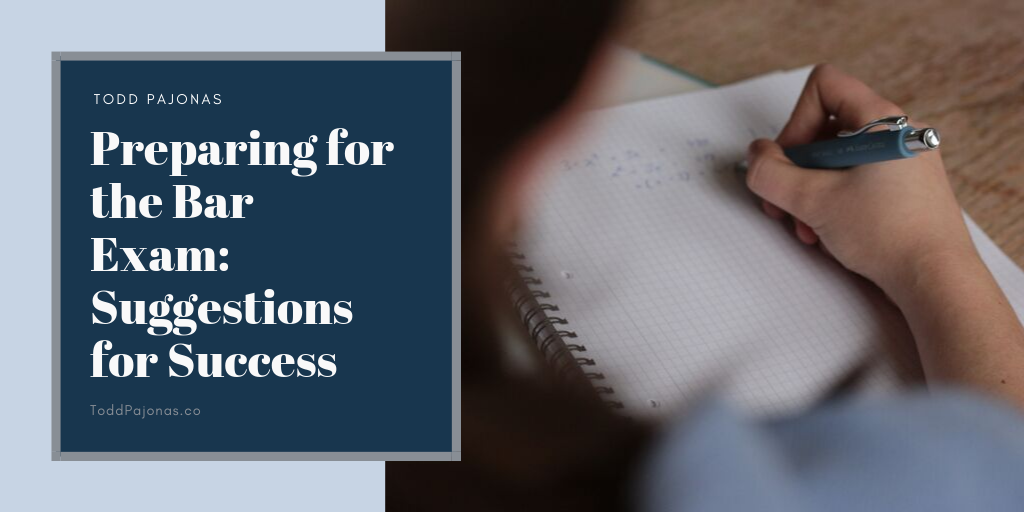Every matriculating law student knows that preparing for the bar exam is a massive undertaking. The time and energy that was invested in the study of law, as well as the completion of law school, have all culminated in the ultimate test of legal knowledge–the bar exam.
To become a practicing attorney, a person must take and pass the test for the state in which they intend to practice law. Given the time and costs associated with pursuing a career in law, it is important that a law school graduate does everything possible to prepare themselves for the bar exam and ensure they pass it the first time. With that in mind, here are some suggestions for success on how to prepare for the bar exam.
Limit Possible Distractions – One of the most significant suggestions for preparing for the bar exam involves limiting possible distractions. If someone is a gamer or social media addict, it might be wise to disconnect the gaming devices and delete the social apps for 2-3 months while prepping for the test.
While it is important to limit distractions, it is also crucial not to isolate or cut one’s self off completely. Checking email and messaging services can prove to be of vital importance. Currently, many law students and testing centers utilize postal mail, email, and text messaging as primary forms of communication. If there is any change to a testing location, scheduled test times, or other relevant information, the institutions will likely contact the registered bar exam applicants and inform them of the new details.
Review Useful and Quality Materials – When prepping for the test, it is recommended that test-takers review past bar exams, pick up some prep books, and make-up flash cards. While these study methods may seem outdated in this tech-savvy age, they are proven paths to success. Moreover, bar prep courses and study groups are also effective options if schedules and finances allow. Additionally, many study resources are available online at the state bar and law school websites.
Create a Study Plan – It is important to craft a study plan that meets a candidate’s needs and helps them achieve their goals. An effective prep schedule should be developed within 3-6 months of the bar exam. This approach provides a realistic allotment of prep time so that a test-taker is well-prepared and allows for unforeseen interruptions or delays.
If prospective candidates follow the suggestions for success provided above, they should be well-prepared for the bar exam and ready to address the court.

